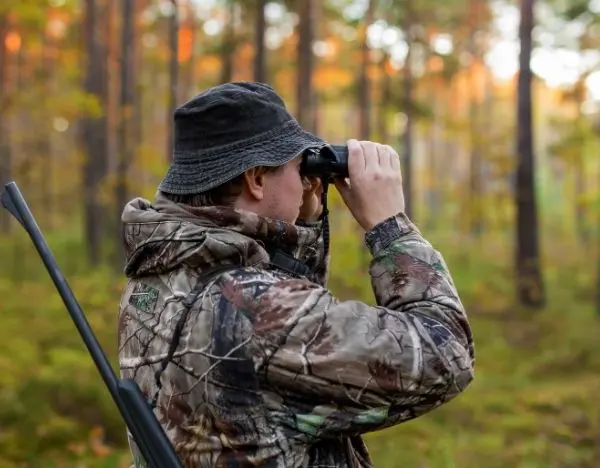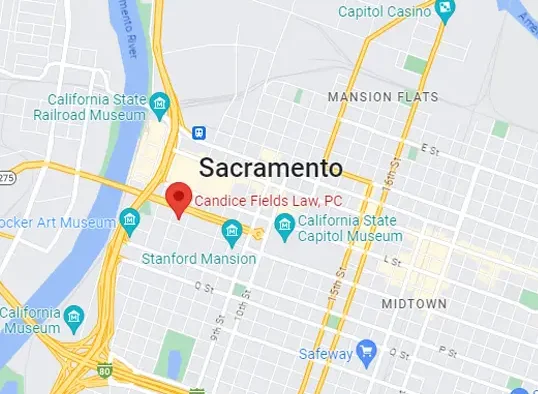How to Handle Hunting and Fishing Violations

Navigating the complexities of federal hunting and fishing laws can be a daunting task. At Candice Fields Law, PC in California, we understand the challenges and concerns that come with being cited for a federal hunting or fishing violation. This blog aims to provide clear, comprehensive guidance on what steps to take if you find yourself in this situation.
What Are Federal Hunting and Fishing Violations?
Federal hunting and fishing regulations are designed to protect wildlife and natural resources. These laws are enforced by various federal agencies, including the U.S. Fish and Wildlife Service. Violations can range from illegal poaching to fishing without the proper permits. It's important to understand that these regulations may differ significantly from state laws.
State Violations in California
State violations in California encompass a broader range of offenses beyond basic licensing and bag limit infractions. These can include:
- Illegal Methods and Equipment: Using prohibited methods or equipment for hunting or fishing, such as spotlighting or using illegal traps.
- Trespassing: Hunting or fishing on private property without permission.
- Harvesting Protected Species: Taking species that are protected or out of season.
- Waste of Game: Failing to retrieve and use the usable parts of the game.
- False Reporting: Misreporting or failing to report harvests as required.
Criminal Penalties
Criminal penalties for these violations vary based on the severity of the offense and may include increased fines, longer license suspensions, mandatory education courses, and in some cases, criminal charges leading to potential jail time. The enforcement of these regulations is essential for wildlife conservation and ethical hunting and fishing practices.
Federal Violations
- Violation of Protected Areas: Illegal hunting or fishing in national parks, wildlife refuges, or other federally protected areas.
- Endangered Species Act Violations: Hunting, fishing, or trafficking endangered or threatened species.
- Lacey Act Violations: Illegally trafficking wildlife, fish, and plants, including violations of state, federal, or international wildlife laws.
- Migratory Bird Treaty Act Violations: Unlawful hunting, capturing, or selling of migratory birds.
Federal Criminal Penalties
These violations can result in severe penalties, including substantial fines, forfeiture of equipment, and imprisonment. The enforcement of these laws is critical for the conservation of wildlife and maintaining ecological balance.
Immediate Steps to Take After Receiving a Federal Hunting or Fishing Violation Citation

Being cited for a federal hunting or fishing violation can be an overwhelming experience. It's essential to handle the situation with care and awareness. Here are detailed steps you should take immediately after receiving such a citation:
Stay Composed and Cooperative
It's natural to feel anxious or upset, but it's crucial to remain calm. Arguing or showing aggression towards the federal officer can exacerbate the situation. Politely accept the citation and avoid making any statements that could be used against you in future proceedings.
Carefully Review the Citation
The citation will contain vital information about your alleged violation. Pay close attention to details such as the specific regulation you are accused of violating, the date and time of the supposed violation, and the location. Understanding these details is crucial for your legal defense.
Gather Evidence and Documentation
As soon as possible, document everything you can remember about the event leading to the citation. This includes environmental conditions, your actions, any witness information, and the officer's behavior and statements. If you have physical evidence that could support your case (such as photographs, licenses, tags, or permits), ensure they are safely preserved.
Identify Witnesses
If there were any individuals present who witnessed the incident or your actions (such as fellow hunters or anglers), obtain their contact information. Their testimonies could be invaluable in your defense.
Avoid Discussing the Incident Publicly
Be cautious about sharing details of the incident with friends or on social media. Public statements can sometimes be misconstrued or used against you in legal proceedings.
Do Not Dispose of Evidence
It might be tempting to discard items related to the violation, but this can be viewed as tampering with evidence and can lead to more serious charges.
Contact a Federal Hunting and Fishing Defense Attorney Immediately
Consulting with a legal professional experienced in federal wildlife laws is one of the most important steps following a citation. A hunting and fishing violation defense lawyer can provide crucial advice on how to proceed, help you understand your rights, and start developing a strategy for your defense.
Understand the Process Ahead
Familiarize yourself with the potential legal processes and consequences. This includes understanding the timeline for responding to the citation, the possibility of fines or legal hearings, and any other potential repercussions.
Keep a Record of Correspondence
Maintain a record of any communication related to the violation, including emails, letters, and phone calls. This record can be important for your case.
Prepare for Your Legal Consultation
Before meeting with your attorney, organize all the documents and evidence you have gathered. Write down any questions or concerns you have to ensure you cover all aspects of your case during the consultation.
By following these steps, you can proactively manage the situation and set a solid foundation for your legal defense. Remember, the actions you take immediately after receiving a citation can significantly impact the outcome of your case.
How a Federal Hunting and Fishing Violation Lawyer Can Assist You
At Candice Fields Law, PC, we understand the complexities and nuances of federal hunting and fishing laws. When you're facing a violation, having a knowledgeable legal advocate on your side can make a significant difference in the outcome of your case. Here’s an in-depth look at how we can assist you:
Comprehensive Case Evaluation
- Initial Consultation: Our first step is to listen to your side of the story in a detailed initial consultation. This is where we gather all pertinent facts about your case.
- Assessing Evidence: We meticulously review all evidence, including reports from wildlife officers, witness testimonies, and any physical evidence you might have.
- Understanding Your Situation: Our goal is to fully understand the circumstances that led to the violation, which aids in crafting a tailored defense strategy.
Experience in Federal Regulations
- In-depth Knowledge: Federal wildlife laws are intricate. Our team stays up-to-date with these regulations, ensuring a thorough understanding of the laws relevant to your case.
- Regulatory Insight: We provide insight into how these laws are applied and interpreted, which is crucial in identifying the best approach to your defense.
Strategic Defense Planning
- Customized Defense Strategies: After assessing your case, we develop a defense strategy tailored to your unique situation, whether it's challenging the evidence, demonstrating compliance, or negotiating a plea.
- Expert Witnesses: If necessary, we can call upon a network of expert witnesses to provide testimony that supports your defense.
Navigating Legal Processes
- Handling Documentation and Filings: We manage all legal documents and filings, ensuring that everything is timely and correctly submitted.
- Representation in Court: If your case goes to court, we provide experienced legal representation, advocating on your behalf and presenting your case in the best possible light.
Negotiation and Plea Bargains
- Dealing with Prosecutors: We have experience negotiating with prosecutors and can work towards a plea bargain if that is the best course of action.
- Reducing Penalties: Our goal in negotiations is to minimize potential penalties, be it fines, suspension of licenses, or other legal repercussions.
Client Communication and Support
- Regular Updates: We keep you informed at every stage of the process, ensuring you understand all developments in your case.
- Accessible and Responsive: Our team is always available to answer your questions and provide legal advice when you need it.
- Emotional Support: Facing a federal violation can be stressful. We provide not only legal support but also guidance and reassurance throughout the process.
Protection of Rights and Interests
- Advocacy: We vigorously advocate for your rights and interests, ensuring that you are treated fairly throughout the legal process.
- Fighting Unjust Charges: If we believe the charges against you are unjust, we will aggressively fight to have them reduced or dismissed.
Educational Guidance
- Preventive Advice: To help prevent future violations, we offer advice and guidance on complying with federal hunting and fishing laws.
- Knowledge Sharing: We believe in empowering you with knowledge, helping you understand the legalities of hunting and fishing activities.
At Candice Fields Law, PC, our commitment to our clients goes beyond the courtroom. We strive to provide comprehensive legal services that address every aspect of your federal hunting and fishing violation case. Contact us today to learn more about how we can assist you in navigating these complex legal waters.
Legal Defense Strategies for Federal Hunting and Fishing Violations
When facing a federal hunting or fishing violation, it is crucial to develop a robust defense strategy. The strategy will depend on the specifics of your case, including the nature of the alleged violation and the circumstances surrounding it. Here are several potential defense strategies that Candice Fields Law, PC may explore:
Challenging the Evidence
One of the first lines of defense is to scrutinize the evidence presented against you. This can involve questioning the accuracy or legality of how evidence was collected or challenging the credibility of witness testimony. For instance, if the evidence was obtained through an improper search, it may be possible to have it excluded.
Asserting a Lack of Intent
Many wildlife violations depend on the accused having a specific intent to violate the law. Demonstrating that your actions were unintentional or that there was a misunderstanding of the regulations can be a powerful defense. For example, if you mistakenly hunted in a restricted area believing it to be a legal hunting ground, this could be used in your defense.
Demonstrating Compliance with Regulations
In some cases, you may be able to show that you were in compliance with federal regulations, but there was a misinterpretation or misapplication of the law by the enforcing officers. This might involve providing evidence of valid permits or licenses or demonstrating adherence to hunting and fishing limits.
Mistake of Fact
Similar to lack of intent, a mistake of fact defense argues that you had a reasonable, albeit incorrect, belief about a crucial fact. For example, if you were charged with taking an endangered species but had reasonable cause to believe the species was not endangered, this could form the basis of your defense.
Entrapment
While rare, there are instances where an entrapment defense might be applicable. This would be the case if a law enforcement officer induced you to commit a violation you would not have otherwise committed.
Constitutional Violations
This defense focuses on violations of your constitutional rights during the investigation or citation process. For instance, if there was an unlawful search and seizure or if you were not read your rights at the appropriate time, these issues could be used to strengthen your defense.
Negotiating Plea Agreements
In situations where the evidence against you is strong, negotiating a plea deal may be the most strategic option. This could involve pleading guilty to a lesser charge in exchange for a reduced penalty. An experienced attorney can navigate these negotiations to ensure the best possible outcome.
Utilizing Expert Testimony
In complex cases, bringing in expert witnesses such as wildlife biologists or environmental scientists can help clarify technical aspects of the case or dispute the prosecution's interpretation of the evidence.
Mitigating Circumstances
Highlighting mitigating factors such as a lack of prior violations, good character, or cooperation with authorities can be influential in reducing penalties.
Each of these strategies requires a thorough analysis of the facts of your case and a deep understanding of federal wildlife laws. At Candice Fields Law, PC, we are prepared to evaluate your situation meticulously and advise you on the best course of action. Our goal is to protect your rights and work towards the most favorable outcome in your case.
Take the Next Step: Secure Your Legal Defense with Candice Fields Law, PC
Facing a federal hunting or fishing violation can be a challenging and daunting experience, but you don't have to face it alone. Candice Fields Law, PC is here to provide you with the legal experience and support you need. Our team is dedicated to safeguarding your rights and working towards the best possible outcome in your case.
Contact us today for a consultation. Let's discuss your situation, explore your options, and start crafting a defense strategy tailored to your unique case. Remember, early legal intervention can be crucial in federal violation cases. Reach out to Candice Fields Law, PC now, and take the first step towards resolving your legal challenges with confidence.





